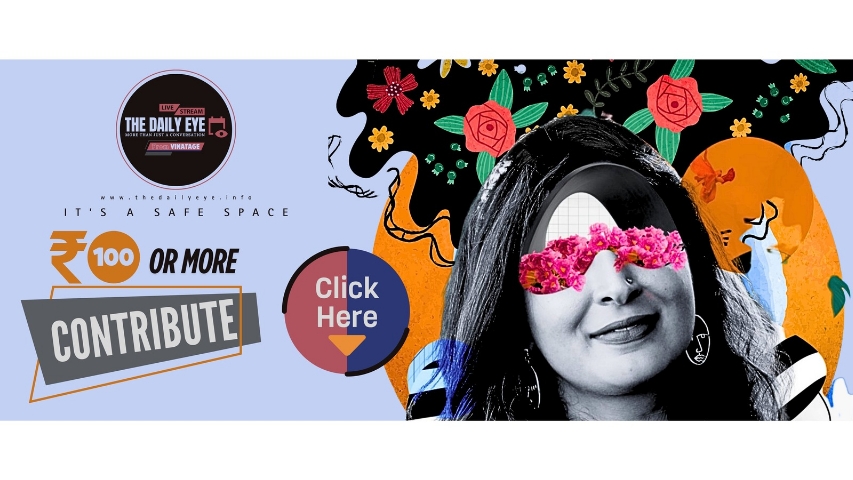
BUSINESS: ROHIT ARYA & WHEN DREAMS TURN DESPERATE
by Sharad Raj November 6 2025, 12:00 am Estimated Reading Time: 6 mins, 45 secsRohit Arya & When Dreams Turn Desperate, by Sharad Raj, explores the fragile world of struggling actors in India’s film industry—where illusions of fame collide with indifference, and one man’s tragic breakdown mirrors a system that has failed too many.
This piece is a deeply human reflection on the underbelly of India’s film industry, where ambition, rejection, and survival often clash. Through the tragic story of Rohit Arya—an actor-turned-casting director who took hostages in Powai before being killed by police—the piece examines how systemic neglect, government apathy, and industry exploitation crush fragile dreams. It exposes the harsh realities faced by thousands of aspiring actors who migrate to Mumbai, only to find humiliation, manipulation, and despair instead of stardom. A powerful narrative on the intersection of art, economics, and mental health, it questions a culture that produces broken dreamers rather than nurtures creative citizens.
When the Dream Factory Stopped Working
I did not know Rohit Arya. In fact, I had not even heard of him. But I know his kind—the tribe of dreamers who leave everything behind to chase the illusion called cinema. The film industry is only a small part of a larger, callous world that rewards appearance more than authenticity.
When the COVID-19 lockdown descended in 2020, dystopia was not an idea anymore—it became a way of life. We watched migrant workers trudge hundreds of miles home, a tragedy as haunting as Partition. Closer home in Mumbai, the city that houses the world’s largest film industry, another silent tragedy was unfolding. Tens of thousands of actors—vulnerable even in the best of times—were suddenly stranded, unemployed, and hopeless.
Actors often arrive in Mumbai after breaking away from their families. They live in shared rooms, borrow money, eat sparingly, and survive on faith. Auditions become their only routine—a cycle that begins and ends in humiliation. For most, a small television role or a walk-on part in a web series is the closest they come to success. Then came the lockdown. The dream factory stopped working. And soon, stories of actors taking their own lives started surfacing.
I remember meeting many such strugglers in my career. Once, a young man came to see me when I was Creative Director at BAG Films. I told him gently that Mumbai may not be for him. “Sir, jab Amitabh Bachchan aur Om Puri actor ban sakte hain, toh main kyun nahi?” he said with conviction. I had no heart to tell him he lacked talent. This young man later called to thank me, saying he had taken my advice, left acting, joined CNBC, and was getting married. “You saved my life,” he said.
Then there was a young woman from Lucknow who said, “Sir, I am willing to do anything—you know what I mean?” I cast her in an episode I was producing, but I remember being shaken. The innocence of my hometown had changed. Aspiration now came with a price tag.
The Broken Hierarchies of Fame
Everyone in the industry has, at some point, treated actors badly. I have too. Sometimes consciously, sometimes unknowingly. Once, an actor waited outside my office for 45 minutes insisting he should play the lead, not the side role. I gave in reluctantly—he became one of television’s biggest teen sensations. Another time, I threw an actor out of Ramoji Film City for refusing to shoot the next day. We all commit such acts. We justify them as part of “the process,” forgetting that actors risk their mental health every time they inhabit a character.
This is why Rohit Arya’s story hits hard. On the 60th birthday of one of India’s biggest stars, the Powai hostage crisis unfolded—a failed actor and casting director, Rohit Arya, held 17 children captive before being shot dead by the police. Overnight, the tragedy became a grotesque social media spectacle.
Rohit must have once dreamt of becoming a Shah Rukh Khan or at least an Anupam Kher. But the cruel lottery of fame was not in his favour. He turned to teaching acting, became a casting director, and even collaborated with the government on social awareness films. But somewhere along the way, the system failed him—like it fails thousands of others every day.
Casting directors, who should be the bridge between talent and opportunity, often become gatekeepers. For an actor’s audition to even reach the director, it must pass through multiple layers of egos and favours. Actors plead, chase, and flatter just to be noticed. For women, it’s worse—the casting couch still thrives, now across genders, disguised as coffee meetings in Lokhandwala or Oshiwara.
Even when they do get work, newcomers are exploited financially. Many casting agents take 30–40% of an actor’s payment. Imagine earning ₹10,000 for a role and getting only ₹6,000 after deductions—often paid to the agent, not the actor. The rest is “commission.”
And that’s not the worst of it. Actors are routinely mocked during auditions—too short, too dark, too emotional, too expressionless. Every insult chips away at their already fragile sense of self.

A Culture That Breeds Despair
When acting failed, Rohit tried to reinvent himself as a teacher and filmmaker. He worked on social campaigns with the State Education Department but, according to reports, payments were delayed or denied. It’s a familiar story—government departments refusing to pay contractors until bribes are negotiated. Whether Rohit defaulted or not, one can’t ignore the pattern. The government’s indifference can break even the strongest.
Imagine being in his place—a man who once dreamed of the spotlight, now cornered by debt, disillusionment, and disrespect. The day of the hostage crisis, he was not merely acting out violence. He was performing the pain of countless others like him—actors forgotten by the very system they once worshipped.
Questions remain: Why wasn’t the Quick Response Team used? Why was he shot dead instead of disarmed? Perhaps because he was expendable—a failed actor, not a celebrity. His life didn’t matter to the machine of media spectacle.
But Rohit Arya’s story is not about one man. It’s about what we, as a society, have become. We’ve built a culture that glorifies stardom but offers no dignity to those who fail. Our education system doesn’t nurture self-worth. Our economy alienates the young. Our films sell dreams without telling the truth about what it takes to live them.
Unemployment, inequality, and media influence have created a generation that measures success by followers and fame. When neither comes, despair fills the void. “If Amitabh Bachchan could, why can’t I?” becomes the national delusion.
In Martin Scorsese’s The King of Comedy, Robert De Niro’s character says, “Better to be king for a night than a schmuck for a lifetime.” That line defines our times. Rohit Arya, too, wanted to be king for a night. The tragedy is, he got his audience—just not the applause.
For his death, we all share the blame. The film industry, the government, the audience, the system—we have all built a culture that consumes human dreams as entertainment. Rohit Arya’s story is a warning. When a society’s imagination is driven only by fame and profit, it stops producing artists and starts producing casualties. His hostage drama was not just a crime—it was a mirror held up to all of us.
Being Rohit Arya is not just about a man who lost his way. It is about the price of aspiration in a system that values illusion over integrity. It compels us to ask—how many more Rohit Aryas will it take before we recognize the cost of our indifference?






-173X130.jpg)

-173X130.jpg)
-173X130.jpg)


